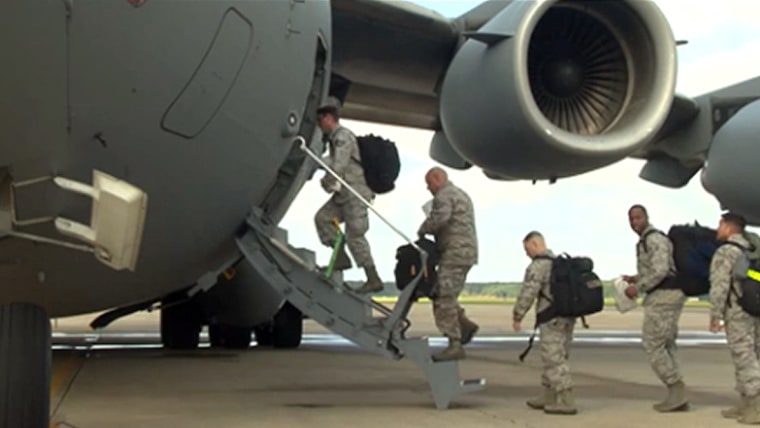Ebola patient Thomas Eric Duncan remains in critical but stable condition at a Texas hospital, officials said Tuesday. "He is on a ventilator and receiving kidney dialysis. His liver function, which declined over the weekend, has improved, but doctors caution that this could vary in coming days," Texas Health Presbyterian Hospital in Dallas said in a statement. "He will continue to receive the investigational medication brincidofovir."
Ashoka Mukpo, the freelance NBC camera operator who is being treated for Ebola at Nebraska Medical Center, is also getting brincidofovir, a twice-a-week pill that's been approved for experiment use in their cases. The drug's been tested against several other viruses, also.
The Dallas case has made U.S. hospitals hyper-alert to the threat of Ebola virus, Centers for Disease Control and Prevention director Dr. Thomas Frieden says. The hospital has been criticized for mistakenly sending Duncan home at first. Frieden says CDC and state health officials are learning from that, and the evidence suggests hospitals are, too.
"Our calls from doctors have increased 10-fold since the first case was diagnosed," Frieden told a news conference. "There is a lot of awareness and we are working to increase that even further." So far, every case has been a false alarm. Many of the patients who look like they're high risk because they have a fever and come from West Africa in fact have malaria, which is far more common than Ebola, Frieden said.
"Hospitals are on high alert right now because we don’t want to miss anyone who presents with a travel history and symptoms consistent with Ebola," agreed Texas state health commissioner Dr. David Lakey.
Even small hospitals can cope with Ebola if they do it right, Frieden said.
"You don’t need a fancy facility for that," he said. "You need a private room with a private bathroom." CDC will help any hospital that finds itself having to treat a suspected Ebola patient, he said. The first line of defense is to isolate the patient. Careful hygiene will protect health care workers.
"It’s not easy but it can be done and it can be done safely," Frieden said. "We know how to stop Ebola spreading in hospitals. But that doesn’t mean it’s easy. It’s hard."
The case of the Spanish nun infected after treating two infected priests demonstrates that. Every protocol must be meticulously followed, from wearing the right protective gear, to taking it off in a way that prevents contamination of clean hands, to using the right concentration of bleach.
IN-DEPTH
- Obama Ready to Ramp Up Ebola Airport Screening
- So Really, How Do You Get Ebola?
- U.S. Troops Fighting Ebola in Africa Will Be Safe: Pentagon
— Maggie Fox
